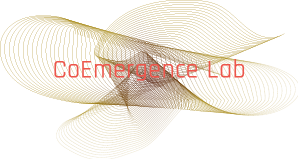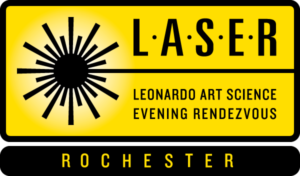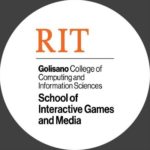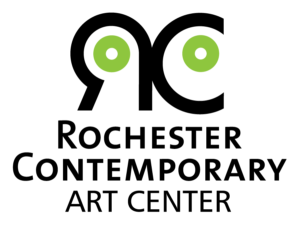LASER - April 28, 2023
Leonardo Art Science Evening Rendezvous
In this our second Leonardo Art Science Evening Rendezvous (and the first at Rochester Contemporary Art Center), we will discuss making electronic music with oyster mushrooms and wetland ecology and restoration. We will be joined by RIT Professor of Environmental Sciences Christy Tyler and artist and media theorist Eryk Salvaggio.
April 28, 2023
6:00 - 8:00PM
Rochester Contemporary Art Center
137 East Ave Suite 203, Rochester, NY 14604
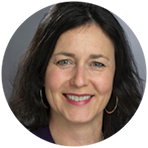
Christy Tyler
Professor
School of Life Sciences
RIT
Christy Tyler is Professor at the Thomas H. Gosnell School of Life Sciences and Director of the Graduate Program in Environmental Science at Rochester Institute of Technology in Rochester, NY. Her research interests include aquatic ecology, biogeochemistry, invasion biology, wetlands, biodiversity, ecosystem function and aquatic plants. She directs the Tyler Aquatic Ecology Lab at RIT, they explore the interactions between aquatic organisms and their environment that drive ecosystem function. Some current projects include: improving wetland restoration techniques, using remote sensing to predict vulnerability of salt marshes and using artificial intelligence to monitor invasive plants. Christy received her B.S. in Biological Sciences from Cornell University, her M.S. from the University of Virginia, and her Ph.D. from the University of Virginia.
Coming soon…
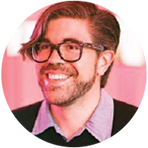
Eryk Salvaggio
Artist and Media Theorist
Adjunct Faculty
School of Interactive Games & Media
RIT
Eryk Salvaggio is an interdisciplinary design researcher and new media artist. His work explores emerging technologies through a critically engaged lens, testing their mythologies and narratives against their impacts on society, culture, and the environment. His work exposes ideologies embedded into technology, fusing a visual culture & media theory lens, a critique grounded in social impacts, and an early background in media activism. His work has been exhibited at Michigan State University Science Museum, the UN Internet Governance Forum, Eyebeam, CalArts, Brown University, Turbulence, The Internet Archive, and in books including Jon Ippolito & Joline Blais’ At the Edge of Art, Alex Galloway’s Protocol: How Control Exists After Decentralization, and Peter Langford’s Image & Imagination. He has presented talks, keynotes and works at the Systems Research & Design Conference (RSD10&11), the Advances in Systems Sciences and Systems Practice Conference (2022), Melbourne Design Week (2021), MIT Press (2021), the University of St. Gallen (2018), California College of the Arts (2018, 2019, 2020), the University of Maine, RightsCon (2020), and Gensler San Francisco (2017). As a Wikipedia Visiting Scholar at Brown University, he created the article on Algorithmic Bias in 2016. Eryk holds a Masters in Media and Communication from the London School of Economics and a Masters in Applied Cybernetics from the Australian National University. He earned two concurrent undergraduate degrees, in New Media and Journalism, from the University of Maine, where he was listed as visiting faculty as an undergraduate based on his early interactive, online net.art work.
Worlding: Sympoietic Mycology
Worlding is a series of musical performances created by linking the internal communication patterns of Oyster mushrooms to a modular analog synthesizer. Mushrooms are a sprawling body — the caps which emerge to greet us are just one extension of their sprawling underground network. This network is exploratory: it seeks food, favorable light conditions, recoils from harm. It moves nutrients from one region to another, becoming entangled with the roots of plants and trees.
This outcome was the result of a design process wherein each decision engaged with a philosophical inquiry into human observation and presence, communication and transmission, and poetics of translation and ambiguity. The mushroom-synthesizer interaction is a microcosm for understanding what’s involved in questions about interfaces, information, and flows of exchange.
The Leonardo Art Science Evening Rendezvous (LASER) are an international program of gatherings that bring the humanities, arts and sciences together for informal presentations and conversation with an audience. As of 2022, they take place in more than 40 universities and cultural institutions in four continents.
Carlos Castellanos
Assistant Professor
School of Interactive Games & Media
carlos.castellanos@rit.edu
